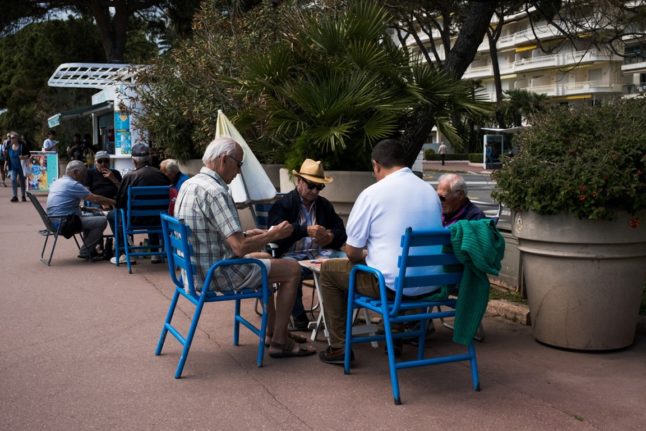The phenomenon was scarcely recorded in France until the late 1980s, but in 2022 the authorities recorded 39 cases of people living for 110 years or more, the Institut national d’études démographiques (INED) said in a report.
Centenarians, meanwhile, have seen a “spectacular” rise in numbers, INED said, growing from around 1,000 in 1970, to 8,000 in 2000, and rising 31,000 at the start of this year.
On current trends, 200,000 people in France will be 100 or older by 2070, it said.
“We’re seeing a spectacular rise of very old people,” France Mesle, one of the report’s authors, told AFP, although she added that their number was still “negligible” in demographic terms. France’s overall population is around 68 million, with more than 20 percent aged 65 or over.
The statistics are consistent with an earlier finding showing that the probability of reaching 100 or more is higher in France than in 15 other European countries.
French women have the highest life expectancy in the European Union, reported at 85.2 years in 2022. France also counted the EU’s highest number of centenarians last year, according the national statistics institute Insee.
Two of the four individuals worldwide recognized as having lived more than 118 years are French women: Jeanne Calment, the oldest recorded person who died at 122 years and 5 months, and Lucile Randon, who died just before her 119th birthday.
Around 2,000 people in France were 105 years old or older in 2023. Of the 39 people who died at 110 or older in 2022, 38 were women.
They were typically involved in manual occupations such as farming, and their diet was healthy, said Laurent Toussaint, an expert on supercentenarians.
While the number of supercentenarians is evenly spread across metropolitan France, eight times as many can be found on average in the French overseas territories of Guadeloupe and Martinique.
The report said there was no clear explanation for this phenomenon. It said, however, that the island populations, mostly descendants of slavery survivors, may have inherited more robust genes adding to their longevity than population segments that were never exposed to slavery.
Marie-Rose Tessier, believed to be the oldest person in France, is 113 years and 11 months old.
The oldest person in the world is Maria Branyas Morera, 117, who lives in Spain, according to the US Gerontology Research Group.



 Please whitelist us to continue reading.
Please whitelist us to continue reading.
Member comments